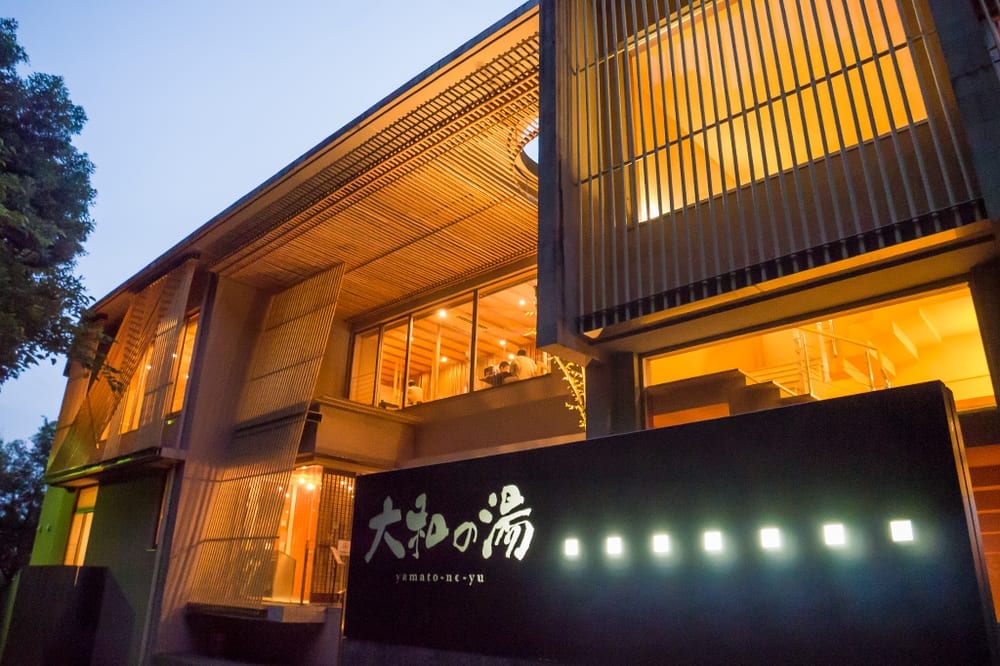When it comes to finding tattoo-friendly onsen (hot springs) in Japan, it can be a challenging task for travelers who want to experience this iconic tradition while still showcasing their body art. Historically, onsen facilities have strict rules against tattoos due to cultural norms and concerns about gang affiliations. However, as Japan's tourism industry continues to evolve and cater to international visitors, more tattoo-friendly options have emerged, offering a unique blend of traditional relaxation and modern inclusivity.
Understanding the Tattoo Culture in Japan

In Japan, tattoos have long been associated with the yakuza, the country’s organized crime syndicates. This cultural perception has led to a widespread ban on tattoos in public spaces, including onsen, swimming pools, and even some gyms and spas. The stigma is so strong that even small tattoos hidden beneath clothing can be a cause for concern.
Despite this, tattoos are becoming increasingly popular among younger generations in Japan. Many Japanese artists are pushing the boundaries of traditional tattoo art, incorporating unique designs and modern techniques. This shift in perception has prompted a need for more inclusive spaces, especially in the tourism industry.
Tattoo-Friendly Onsen: A New Approach

In recent years, a growing number of onsen facilities have embraced a more welcoming attitude towards tattoos, recognizing the importance of accommodating international travelers and modern Japanese tattoo enthusiasts. These tattoo-friendly onsen often have specific policies in place to ensure a comfortable and relaxing experience for all guests.
Private Baths and Reservations
Many tattoo-friendly onsen offer private baths, allowing guests with tattoos to enjoy the hot springs experience without worrying about potential judgment or stares. These private baths often come with advanced reservation systems, ensuring a peaceful and private atmosphere.
For example, the Hana No Yu Onsen in Nagano Prefecture provides private bath options, ensuring that guests can relax without any distractions. This approach not only caters to those with tattoos but also offers a more intimate onsen experience for those seeking solitude.
Tattoo Cover-Up Options
Some onsen facilities go the extra mile by offering tattoo cover-up options, such as waterproof bandages or special sleeves. This allows guests to cover their tattoos temporarily, adhering to traditional onsen etiquette while still enjoying the therapeutic benefits of the hot springs.
The Oedo Onsen Monogatari in Tokyo is a notable example, providing guests with special tattoo cover-up kits. This innovative approach ensures that guests can fully immerse themselves in the traditional onsen culture while respecting the facility's policies.
Tattoo-Inclusive Policies
A few progressive onsen have adopted fully tattoo-inclusive policies, welcoming guests with tattoos of any size and location. These facilities often have a strong understanding of the cultural significance of tattoos and strive to create an inclusive environment.
One such onsen is the Shirahama Onsen in Wakayama Prefecture. This traditional hot spring resort has gained popularity among travelers with tattoos, offering a warm and welcoming atmosphere without any restrictions.
The Future of Tattoo-Friendly Onsen
As Japan continues to open its doors to international tourism and embrace its own evolving tattoo culture, the future of tattoo-friendly onsen looks promising. More facilities are likely to adopt inclusive policies, recognizing the importance of accommodating all visitors.
Additionally, the rise of tattoo-friendly onsen may inspire other public spaces in Japan to reevaluate their tattoo policies, fostering a more inclusive and welcoming atmosphere across the country.
A Note on Respect and Etiquette
While the emergence of tattoo-friendly onsen is a positive development, it’s important for guests to remember the cultural significance of onsen traditions. Even in tattoo-friendly facilities, it’s essential to maintain respect for the local customs and etiquette.
| Onsen | Location | Tattoo Policy |
|---|---|---|
| Hana No Yu Onsen | Nagano Prefecture | Private baths available |
| Oedo Onsen Monogatari | Tokyo | Tattoo cover-up kits provided |
| Shirahama Onsen | Wakayama Prefecture | Fully tattoo-inclusive |

Frequently Asked Questions
Are there any other public spaces in Japan that are tattoo-friendly?
+While onsen are a significant step towards inclusivity, some swimming pools and gyms have also started adopting more welcoming tattoo policies. However, it’s best to research individual facilities as policies may vary.
What should I do if I encounter a non-tattoo-friendly onsen during my travels?
+If you come across an onsen with a strict no-tattoo policy, it’s best to respect their rules and find an alternative. You can ask locals or check online reviews for recommendations on tattoo-friendly options nearby.
Are there any specific cultural norms I should be aware of when visiting a tattoo-friendly onsen?
+Absolutely! While tattoo-friendly onsen are more accommodating, it’s still important to respect local customs. This includes following proper bathing etiquette, such as thoroughly washing before entering the hot springs, and maintaining a calm and respectful demeanor.
Can I bring my own tattoo cover-up supplies to an onsen that doesn’t provide them?
+While it’s best to check with the onsen’s specific policies, many facilities may allow guests to bring their own tattoo cover-up supplies. However, it’s important to ensure that these supplies are waterproof and won’t cause any mess or inconvenience to other guests.
Are there any other traditional Japanese experiences that are tattoo-friendly besides onsen?
+Yes, some traditional Japanese inns and ryokans are becoming more accommodating to guests with tattoos. Additionally, certain cultural experiences like tea ceremonies and kimono rentals are generally open to all visitors, regardless of tattoos.